Video Feature & Web-Exclusive Interview
Artist: WALT WILKINS
Video: “Poetry” – Concerts from Blue Rock LIVE
TINA & WALT WILKINS FEATURED AT BLUE ROCK ALIVE! VIRTUAL SUMMER CONCERT SERIES
Tina & Walt Wilkins will be the featured artist this Thursday (July 23) at Blue Rock aLIVE!—a unique virtual summer concert series—featuring iconic Austin-based artists every Thursday this summer. Blue Rock is a good example of innovation, quality and creativity. Each event is produced in broadcast quality audio-video from Blue Rock’s renowned Texas room—streamed straight to you. When you buy a Season Pass for $105 (https://bluerocktexas.com/events), you send in your headshot—and they place it on a seat, so you will literally be sitting in the room.
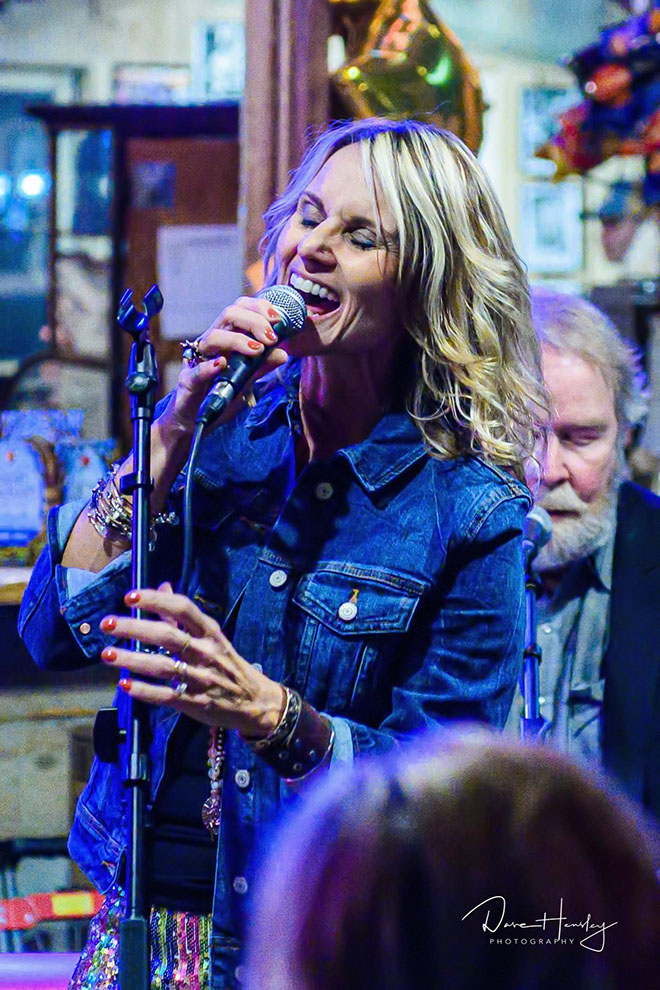
Walt Wilkins has been crafting story-songs for 25 years. Over 100 songs have been cut by a wide range of artists including Kenny Rogers, Kellie Pickler, Ricky Skaggs, Pat Green, Ty Herndon, Kevin Welch, Pam Tillis and Balsam Range. He has recorded 12 records, some solo, some with his Texas super-group The Mystiqueros and some with his singer-songwriter wife, Tina.
We talked with Tina & Walt Wilkins about their passion for songwriting, the intricate way a story weaves its way through everyday life and what continues to inspire their creative process and keep them hopeful in these unique times.

TINA & WALT WILKINS Interview
with M Music & Musicians magazine publisher, Merlin David
Tell us about the song “Poetry” from the album Rivertown.
You would think the whole song was written to the word “poetry,” but the truth is that the title was one of the last things written. (Laughs) I started the song and the verses coming through were all biographical. I had an idea for the chorus and I took it to one of my favorite co-writers Davis Raines. This is when we lived in Nashville. It took two appointments to get it to where we wanted it. When the word “poetry” slotted into the song, then we had the key to the song, the door opened and I knew that I could play that song forever. I instantly loved the song.

What made that song unique?
The songs that I like the most come from what I’m thinking about. I had the biographical verses but I was trying to figure out what my subconscious was trying to tell me. Some people would consider it religious. It’s certainly about meaning—one of those moments when you look out and you think “this seems to make some sort of sense.” A lot of times things just don’t make sense. But this song celebrates the times when you do look out and you feel connected—and you feel you’re a part of something larger. When that happens—those are good moments.
How did the idea for “Someone Somewhere Tonight” come to you?
When out son Luke was 10 weeks old, I got on a bus for a year and played for Pat Green. I was in his band for one year, almost to the day. It was his first year on a bus—some great times. We toured all over the country and I was gone a lot. I was the oldest guy on the bus. (Laughs) One morning around 5:30 or 6 AM, I got up and I was looking out the window. We were driving through Ohio. I was thinking of my son and projecting missing his first steps. I know I missed his first words. Tina was teaching him sign language and I missed the first time he used that. I was homesick from traveling around. We were passing through a small town, farm, field, suburb and then into the city. I thought—every one of those houses has a story. Right now, someone doing shift work is coming home from work, someone’s getting up, someone’s crying, someone is sick, someone is in desperate need of help. I was seeing all these houses and every one had a story. I wrote the first two verses in the dark—in my notebook. Then I took it to Davis Raines, who I think is brilliant. I had a line or two of the chorus and we wrote the last verse which switches the perspective a little. Davis and I have written a lot of songs that I really love.

Did you know where you wanted that song to go?
I really love the song. It’s been cut a bunch of times. I thought it should have been a single. Kenny Rogers cut a beautiful version of it—not long after it was written. He told a mutual friend that he thought it was going to be a single. He said, “this is going to be a huge song.” But it was never released as a single until it was cut by Kellie Pickler about seven years ago and released as a single. But it only made it to #49. [It was nominated for the 2013 American Country Awards’ Female Video of the Year.]
Do you both write together?
WW: Tina and I write when we can. Our good friend Randy Sitzler from Detroit recently brought the title “Twilight” with a concept, and the three of us wrote it at our kitchen table. It’s one of my favorites. It fits Tina perfectly.
TW: It’s about the last light of the evening. Randy comes down a couple of times a year, and we write. He said, “Let’s write this song about twilight.” I like period songs of the 30s and 40s, so we wrote it in that vein. It could be a piano song or a guitar song. It’s lyrically gorgeous and so much fun to sing. It reminded me a lot of the beautiful California evenings when the Santa Ana winds would come in, you’re in love and everything is palpable.
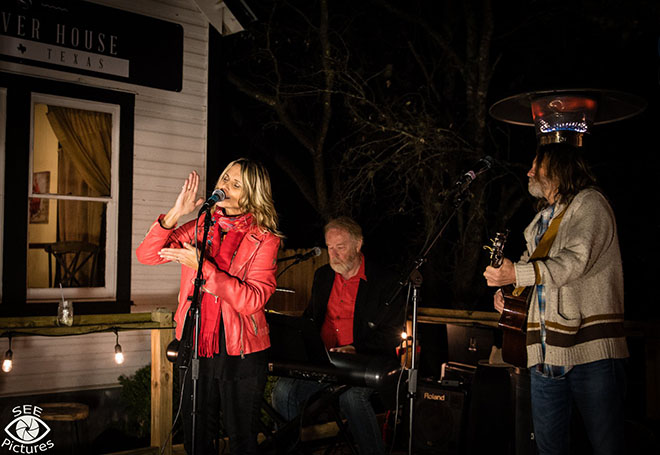
How do you remain hopeful in this strange and unique time?
Tina is generally more hopeful than I am—and she is now. We can outlast the virus—humans solve these things. But the division—this amount of vitriol everywhere—it appears to remain beyond our grasp to solve. You do as my personal teacher the great artist Bill Worrell says: “Keep creating, keep risking.”
Who originally inspired you to write songs?
My dad’s record collection was quite influential, and the fact that everyone in my family reads books. There were books everywhere. His Glen Campbell records got me when I was about seven or eight years old. The songs were amazing with stellar production—and man could he sing. His team (or he himself) found great songs from every genre—cool writers of the era, including those timeless, sparkling Jimmy Webb songs.
Is there a songwriting tip you’d like to offer?
I’ve done a lot of co-writing. In Nashville, the culture is co-writing. So I co-wrote all the time for about 10 years. I had not done much before I got there, except with friends. When I left, I didn’t want to do that anymore. But I’ve found a couple of writers down here in Texas. I don’t write as much anymore. It’s a different set of muscles to write songs by myself, but I like it. I love writing songs when I can. If it was easy to write good songs, everyone would do it. (Laughs) You’ve got to study it and have something to say. I just say “work at it.”
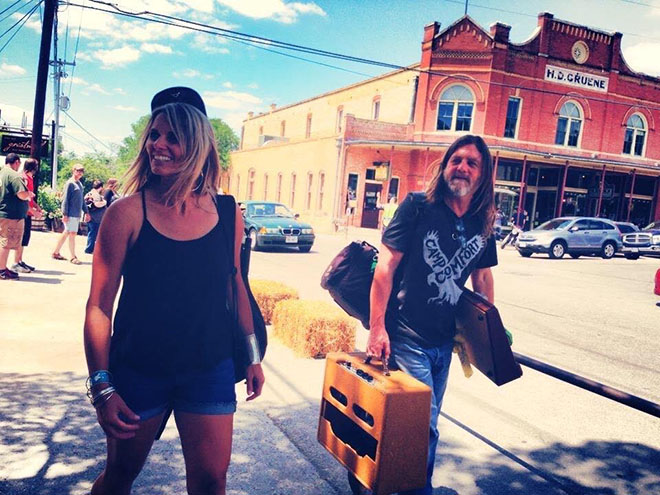
Tell us about another one of your songs.
There have been a dozen or so songs cut by major labels, but none of them have ever been a hit. I’ve never really had a big hit. I did help Pat Green finish a song “Carry On” about 20 years ago that went to #30 on the Country charts. Pat put my name in the song lyrics—as an homage. (Laughs) He was trying to do something nice. It’s kinda odd to have a songwriting credit on a song that mentions your name. But that happened because we each wrote verses and it was his verse. (Laughs) He had started a song. We were in Nashville. It was his first trip up there. We worked for a few hours on the song and it wasn’t going anywhere. So we went and got some coffee and he said, “I got this other thing” and he played that chorus. I said, “Pat, that’s just fantastic. That’s a hit. It’s a great chorus.” We had only 15 minutes to work on it before I had to get him to the Nashville airport so he could fly home to Austin. He said, “You write a verse, I’ll write a verse.” He already had one written, then he wrote a verse from scratch and I wrote a verse from scratch. He wrote it down and that was it—he flew home. We kept tweaking it on email or on the phone up until he recorded it. Three weeks later, it was on the radio in Texas. The production was amazing and he sang the hell out of it. Lloyd Maines produced it. That song changed Pat’s life.
Have any of the covers of your songs surprised you?
I’ve been lucky. I’ve had over 100 songs cut by people. Some things are surprising. I’m grateful for all of them. But I have a song called “Trains I Missed” [co-written by Gilles Godard and Nicole Witt] recorded probably a dozen times by different people. It wasn’t a country hit—it was a bluegrass hit, the 2011 IBMA Song of the Year by Balsam Range. It changed their life. Their career took off after that. Their version is sublime—it’s beautiful. It’s been recorded by a lot of people. I love their version. It was surprising because it is bluegrass, and I’m not a bluegrass guy. I don’t think of my song that way. But the arrangement and their harmonies—everything about it was just beautiful. When I heard their version, it really knocked me out.
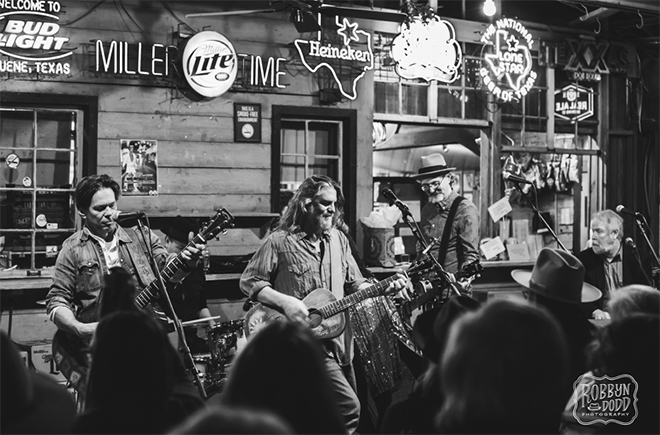
Any other songs surprised you?
I wrote a song “Livin’ Part of Life” with Liz Rose and Eric Church—it’s the last song on his first record. It’s such a pop song. He and his producer Jay Joyce didn’t want to produce it like a country song. They cut it like The Basement Tapes[Bob Dylan]—with a tuba and banjo. I like Eric Church a lot. His version is just hilarious, robust and lively—it’s just great. But as soon as we heard that version, Liz and I said, “Ah, we’re not going to have a hit.” (Laughs) You’ve got to hear it. It’s really fun. I like that song a lot. Liz and I wrote a lot of songs together. I love Liz.
Which Top 5 Musicians inspired you to become a musician?
WW: Larry Seaman—next door neighbor, five years older, who played guitar and went on to make some of Austin’s most engaging and enduring pop music. He still does. In Austin, it seemed real possible in the 70s to become a writer, a player: Michael Murphey, Steve Fromholz, Willis Alan Ramsey, Jerry Jeff Walker—all these folks were playing around where I grew up.
TW: Linda Ronstadt, James Taylor, Bono, Bette Midler and Lena Horne.
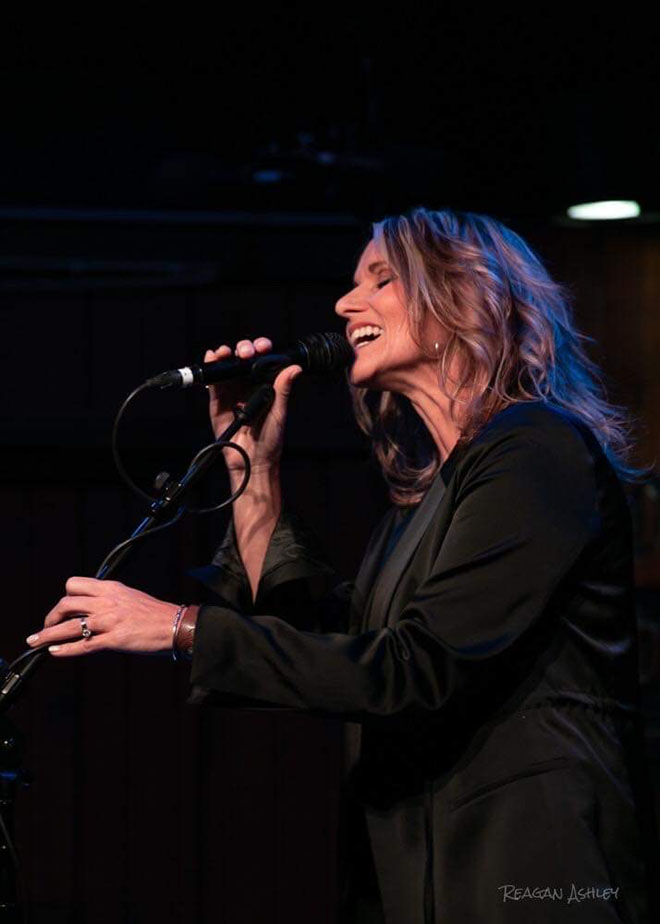
What are your Top 5 favorite albums of all time?
WW: We both were heavily influenced by Linda Ronstadt & Emmylou Harris records. I do have a Top 5, Top 10, Top 100—too many to even begin the list. But Jackson Browne’s Late for the Sky may be #1. There’s no way I could have understood much of what he was singing about, but it sure got inside me.
TW: Wrecking Ball by Emmylou Harris, with Daniel Lanois.
What is it about Billy & Dodee Crockett that makes Blue Rock so special?
TW: They are spectacular humans. They are pretty magical. Perhaps, they may be old souls.
WW: They created that Blue Rock space to help artists create. The vibe is warm and heady. It’s a great place to play and a wonderful place to be in the studio or just sit and write. I wrote a song there with Lori McKenna. We got up in that tower and wrote a song. Tina and I made one duet record [Be Mine] and “A Soft Place” is on that album.
What is the best advice someone has given you?
WW: In 1983, I had an opportunity to visit with Lionel Richie—long story. He was so cool. When it was time to say goodbye, he told me and my bandmate Frank Patterson, “Remember there’s the music business, then there’s the business of music.” Which to me meant: make sure you’re good—doing good work, then worry about the business and anything else.
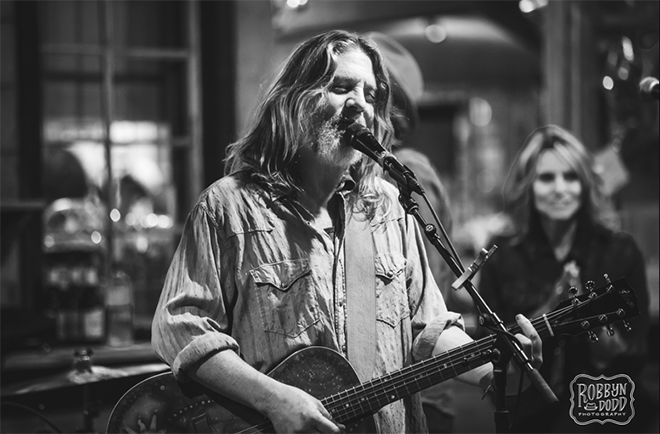
TW: My dad told me, “Do what you love.”
Where can new fans get more info and stay updated?
www.WaltWilkins.com
www.TinaMitchellWilkins.com
Also, our Facebook pages.
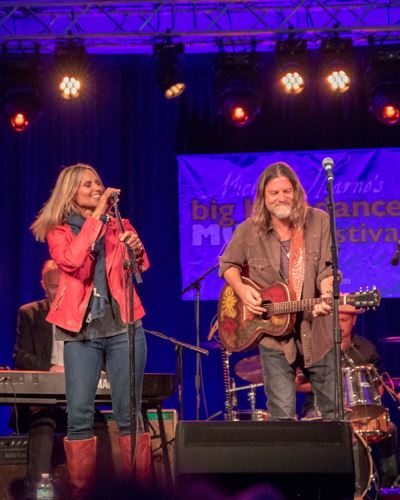
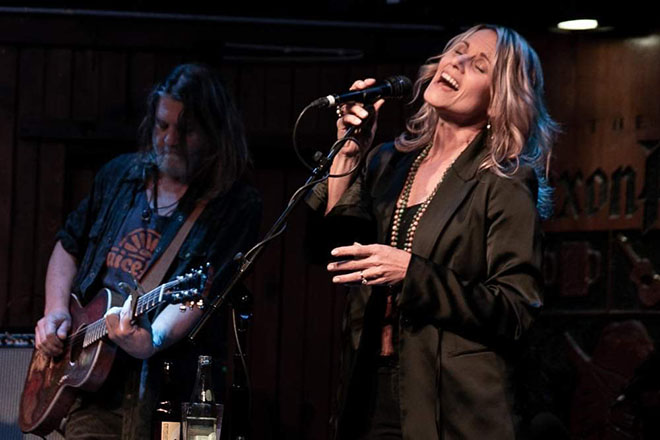



comment closed